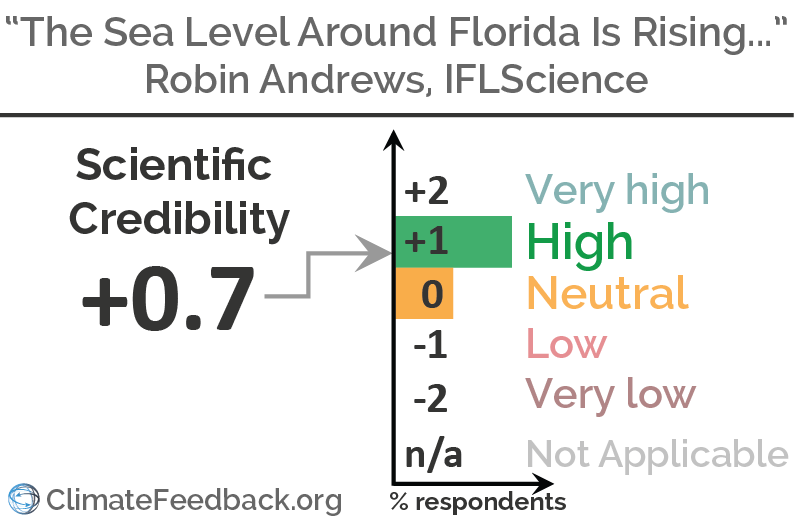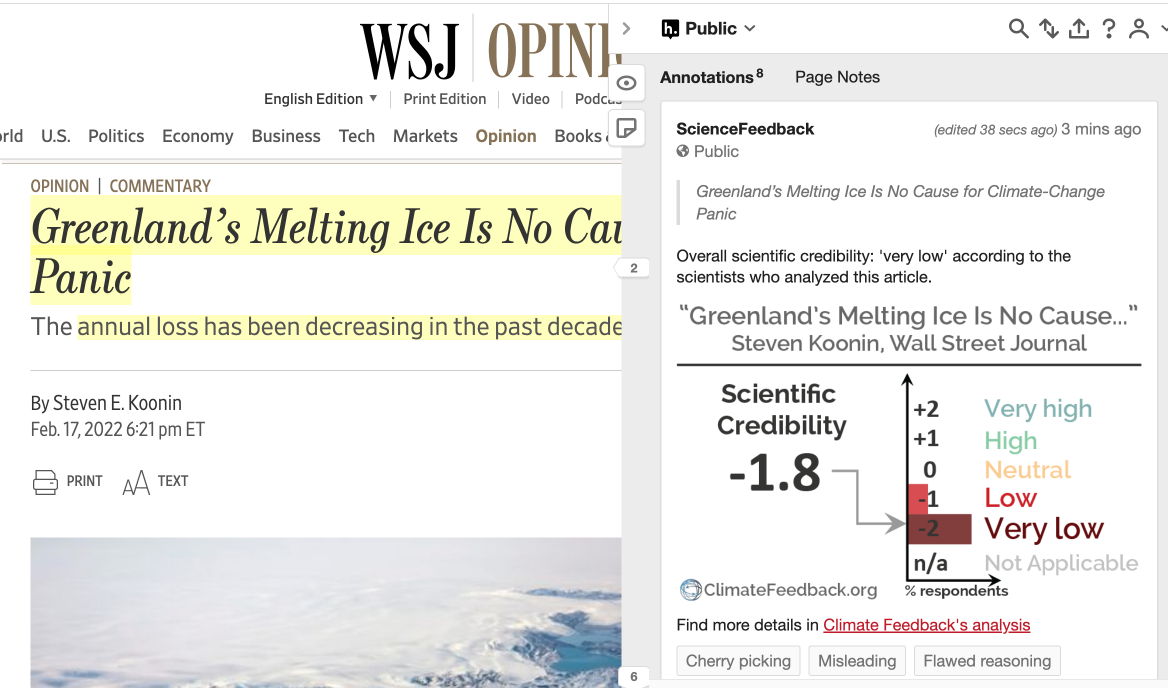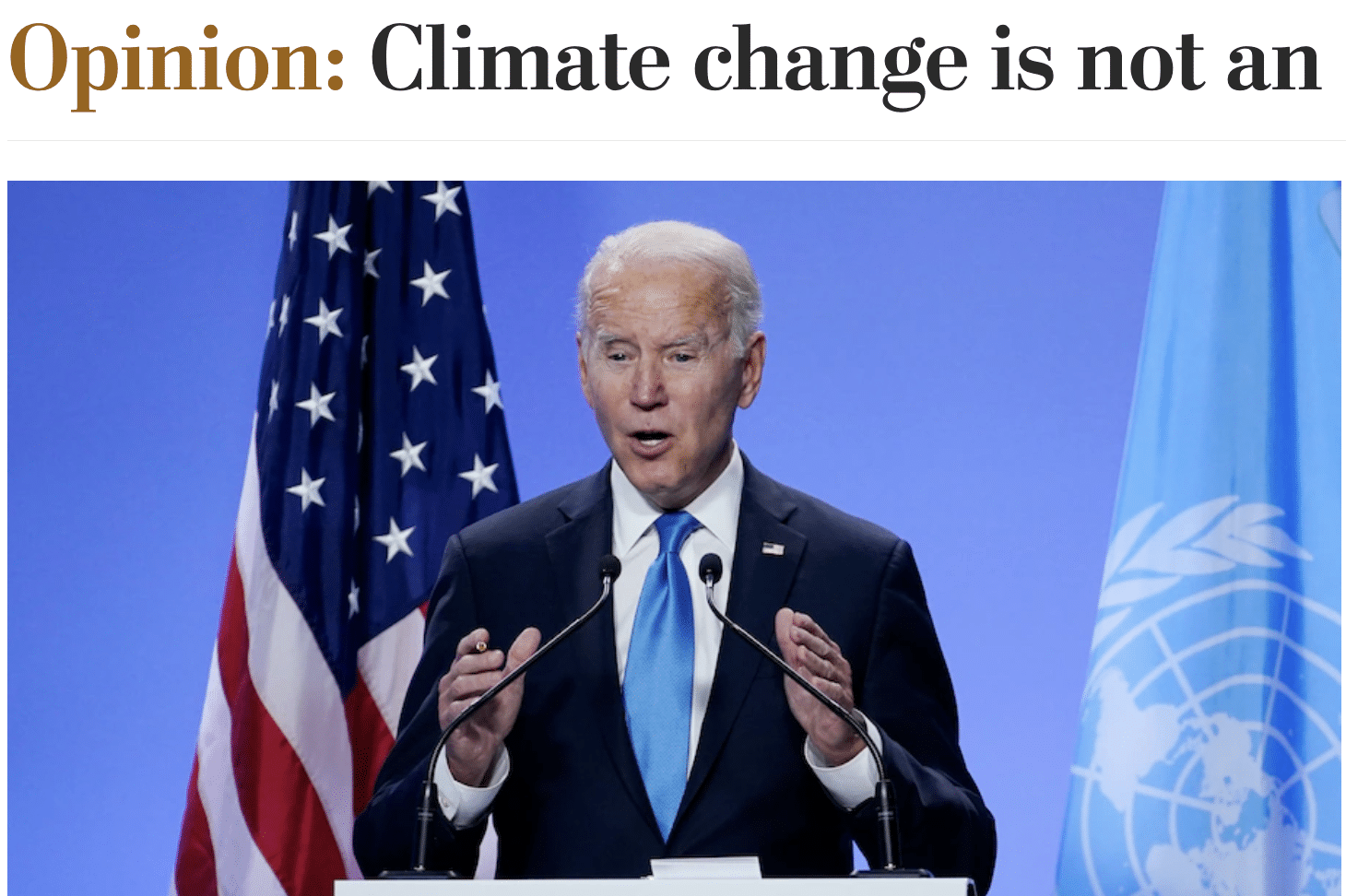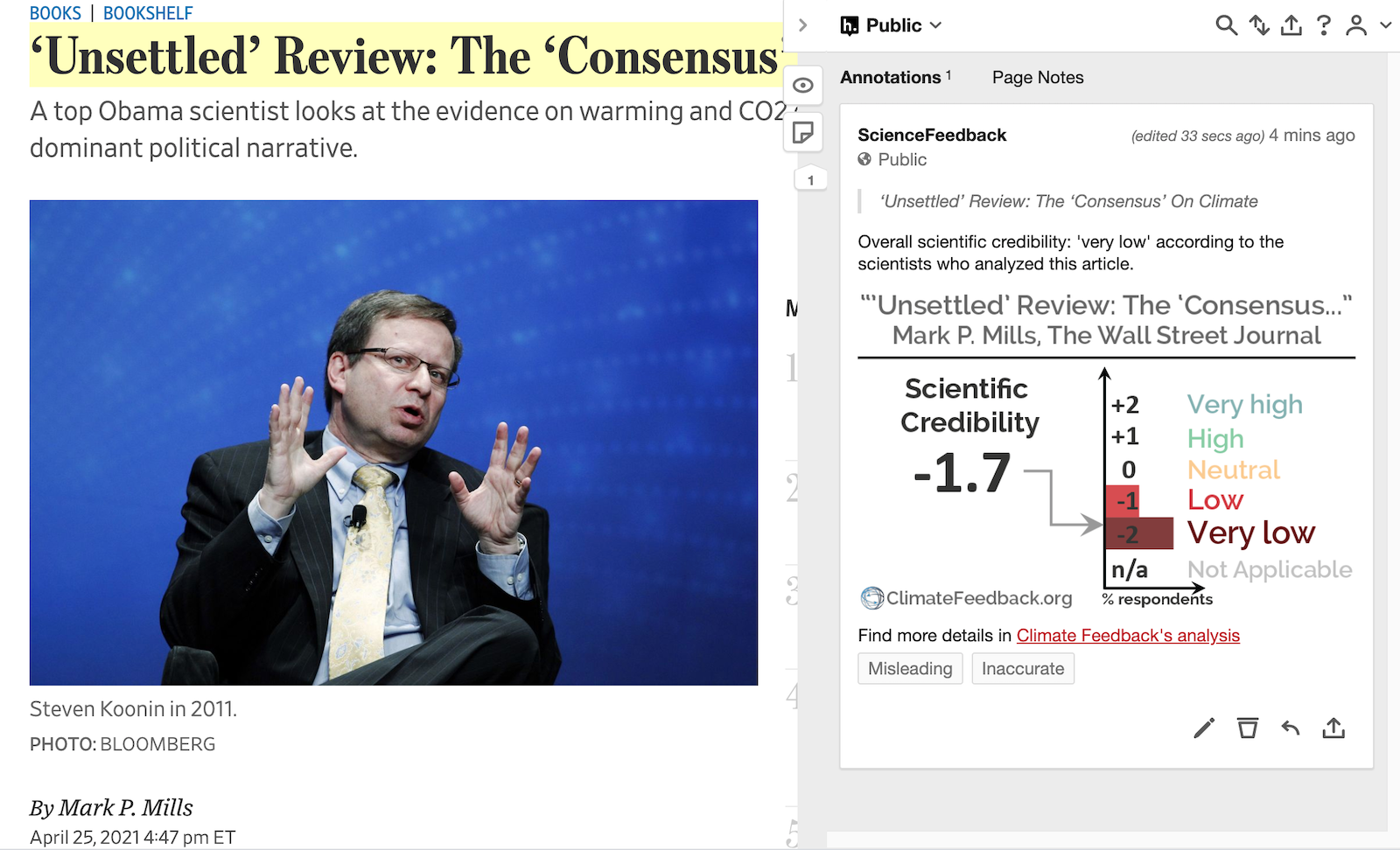- Climate
IFLScience story on Florida sea level rise somewhat unclear but generally correct
Reviewed content

Headline: "The Sea Level Around Florida Is Rising Six Times Faster Than Average"
Published in IFLScience, by Robin Andrews, on 2017-08-11.

Scientists’ Feedback
SUMMARY
This story by IFLScience covered an August 2017 study published in Geophysical Research Letters that examined variability of sea level rise rates along the US East Coast.
Scientists who reviewed the article found that its summary of the study was largely correct, but was unclear or somewhat misleading in several details (like the relationship between natural variability and the rate of expected future sea level rise).
See all the scientists’ annotations in context
This is part of a series of reviews of 2017’s most popular climate stories on social media.
REVIEWERS’ OVERALL FEEDBACK
These comments are the overall opinion of scientists on the article, they are substantiated by their knowledge in the field and by the content of the analysis in the annotations on the article.

Research Scientist, ECMWF/Met Office
Despite the colloquial tone, the article provides a pretty good summary of the factors responsible for observed sea level variability. The original scientific article is linked from the text and the authors clearly distinguish between the variations associated with climate change and the more rapid and localised change associated with modes of internal variability.
However, this distinction between time scales gets lost a bit in the concluding paragraph. The statement that “[Florida] is set to be underwater faster than anyone has previously estimated” is not an accurate representation of the concluding remarks from the original scientific paper, which states that “[the impacts of sea level rise] may be further amplified by short-lived [sea level rise] hot spots”.

Visiting Associate Professor, University of Wisconsin
[Prof. Dutton was one of the authors of the study described in this article.]
While the information in this article is essentially correct, the links lead to loosely related articles published on the same website, rather than articles that directly support the statements made in the article. The explanation of the acceleration of sea level rise in Florida is oversimplified, probably because it is difficult to summarize concisely. The mechanism is actually the combined effect of the El Niño cycle and the North Atlantic Oscillation (NAO).
The phrase “faster than average” in the headline is vague: Faster than the average for Florida or the whole world? And over what time period?

Professor, Earth Observatory of Singapore
The study describes an increase in the rate of sea-level rise in Florida due to ocean-atmosphere processes. The paper illustrates the importance of such variability in assessing the flood risk. But I think the link to anthropogenic climate change is misleading.
Notes:
[1] See the rating guidelines used for article evaluations.
[2] Each evaluation is independent. Scientists’ comments are all published at the same time.



